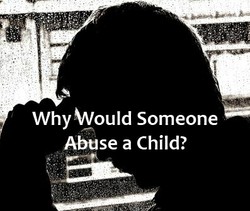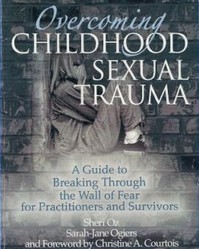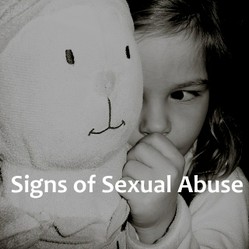The typical child abuser is pictured as male but there are many female abusers as well. There are no reliable statistics available because this sort of abuse is the most difficult to talk about. Even many professionals and survivor groups find it hard to discuss this issue. The general public finds it hard to accept that women can sexually abuse minors because women are supposed to take a caring role in a child’s life.
Those who have experienced this sort of abuse may feel very isolated but it happens more than one might expect.
When a female abuses a child, the abuse can easily be hidden behind claims of caregiving – washing the private areas, putting on cream, checking that everything is alright, etc. If the child feels uncomfortable, if the child is old enough to manage alone, if it is repetitive and done without a good reason, then this is abuse. It may go on for many years, from the time the child is small until late adolescence, and it is difficult for a child to recognize this as abuse even when older.
Abuse by females is just as psychologically damaging as is abuse by males, especially if the abuser is the child’s mother. Survivors abused by men might think that female abuse is less harmful, less violent and easier to get over. It is not,
Abuse by a mother has been shown to be the hardest for the victim to accept and to recover from. The lack of normal boundaries, of a healthy role model and the impact of having receiving the opposite kind of relationship from what one expects from a mother [protection, care, support] is devastating. A mother should be there for her child - but in an abusive relationship, the child is there for the mother to use and manipulate for her own needs.
Abuse of girls by a woman does not mean that the victim is gay. A normal biological reaction to being touched sexually is to be sexually aroused and this does not make the girl a lesbian. It is particularly confusing for the victim to have a normal sexual response when it is her mother or other female caregiver causing it.




 Visiting an Art Gallery With a Two-Year-Oldon 07/27/2015
Visiting an Art Gallery With a Two-Year-Oldon 07/27/2015
 Using the News to Enhance Jewish Identity in Jewish Kidson 07/24/2015
Using the News to Enhance Jewish Identity in Jewish Kidson 07/24/2015
 Xi'an - Not Just Terracotta Warriorson 06/09/2015
Xi'an - Not Just Terracotta Warriorson 06/09/2015
 Sew Your Own Wedding Dress - or Your Daughter'son 02/06/2015
Sew Your Own Wedding Dress - or Your Daughter'son 02/06/2015


This is a Controversial Topic - What do You Think?
You are right, Brenda. It also wasn't told because of threats made by the abuser to the victim and because there was nobody really willing to believe it. I have had clients who are now between 60 and 70 years old who came to me over the almost 30 years I ran a clinic for sex trauma survivors. They came to heal from the sexual abuse they suffered as children.
Last year I was in a cab to a TV station where I was being interviewed about a recent case on gang rape of a teenager by her schoolmates; the cab driver told me how he is so ashamed that he knew something like this was happening to a classmate (20 years earlier) and he did nothing to help it stop. What they regarded then as her "loose" behaviour, he now realizes was rape.
We are much better now at recognizing sexual abuse, molestation and sexual harassment than we once were. That makes it possible for more victims to come forward today. And still, they face disbelief, ridicule, blame for having brought it on themselves in some way. It's a long uphill battle.
Excellent article. A friend and I are always discussing this. She says that these things didn't happen 50 or 60 years ago. I say it has been around since the beginning of time. The media didn't report it as much, because it wasn't told due to the shame and stigma associated with it.
It just make me sick. Honestly anyone harming a children should be locked away period, counseling or not. it is just sick. We had 2 recent cases here in France, when 2 pedophile were released after sentence: both abused and kill a kid. Money and time should be devoted to the victims. Thank you for writing about this tough subject.
Painful subject. You've done a good job presenting it.
Abuse prevention is an important topic.